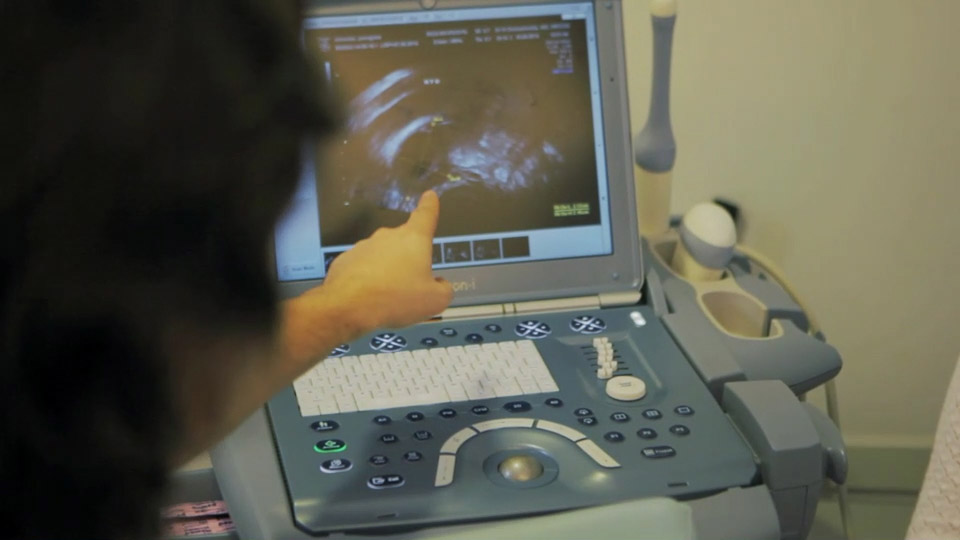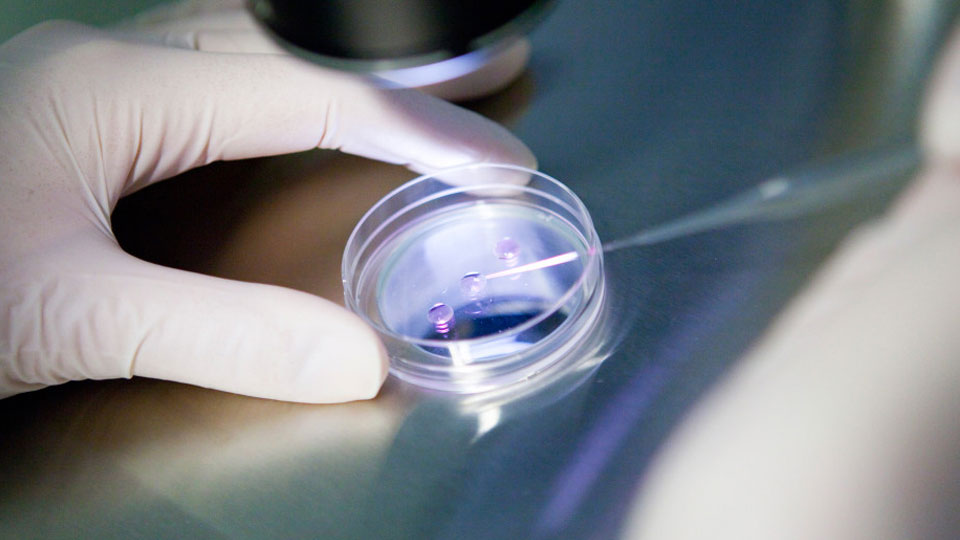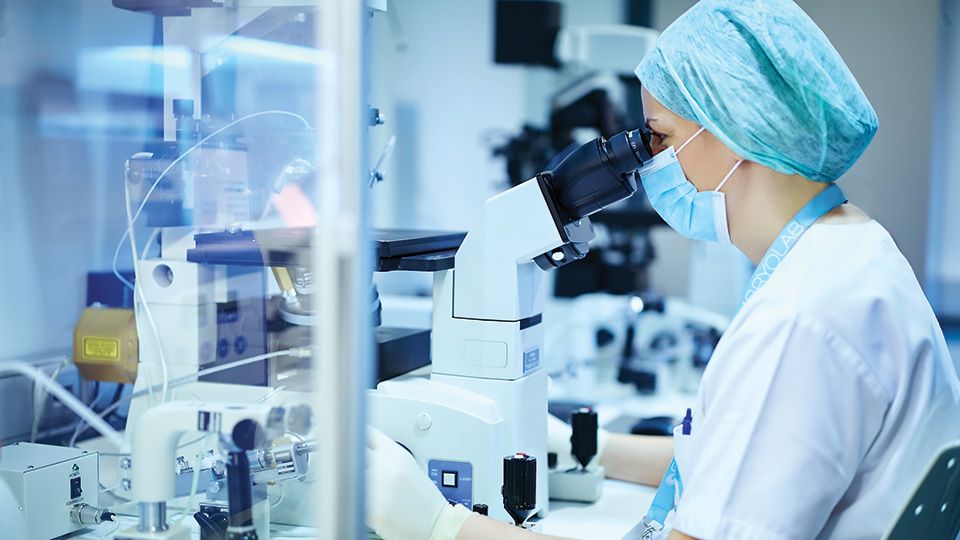Assisted Reproduction
Step by step

What happens in between the initial decision to seek the help of assisted reproduction and the completion of the process? It is the journey that leads to fertility and the completion of your family.
Let's follow it one step at a time

Step 1
Preparation
For a woman’s proper preparation prior to starting the treatment the following examination steps are necessary:
- Hormonal checks to objectively assess ovarian function in order to select the suitable pharmaceutical dosage
- Uterine and ovarian ultrasound to check the condition of the endometrium and record the precise position of the ovaries with a view to facilitating oocyte retrieval
- assessment of the cervix through a virtual embryo transfer test. In this procedure the condition of the cervical canal is monitored so as to avoid any complications during embryo transfer.
hysteroscopy ONLY when there are indications of pathological disturbances in the uterine cavity, either from the ultrasound or after a hysterosalpingography. Hysteroscopy is a special endoscopic method providing for an immediate visual evaluation of the uterine cavity and the correction of any anatomical abnormalities.
For the man, a recent spermogram (up to 3 months prior to beginning treatment) is required so as to assess the number, motility, and morphology of sperm and also pinpoint the presence of any inflammatory cells..

2nd Step
Ovarian stimulation
The aim of this procedure is the production of many mature oocytes in contrast with the only one produced naturally each month. To achieve this, the woman undergoes special hormonal treatment in order to achieve the smooth and synchronised development of many oocytes simultaneously.
The treatment, from its beginning and including the oocyte retrieval stage, lasts from 2 to 4 weeks, depending on the stimulation program (protocol) followed. In the long protocols the commencement of the hormonal treatment occurs on the 21st day of the woman’s cycle or, more rarely, on the 2nd day, and ends 4 weeks later. In the short protocols, treatment begins on the 2nd day of the cycle and lasts around 10-12 days.

3rd Step
Ovarian stimulation monitoring
Monitoring involves an ovarian ultrasound examination and blood tests to determine the hormone levels. This thereby ensures the best possible medication dosage adjustment leading to a satisfactory number of eggs. Additionally, this means less likelihood of ovarian hyperstimulation.
When the ovarian follicles, which include the eggs, reach the desired size, 17-18 mm as a general rule, the final part of the treatment is administered for the oocytes maturation and the preparation for their retrieval. Around 34-35 hours should elapse from the last injection performed until the carrying out of the oocyte retrieval.

4th Step
Oocyte retrieval
Oocyte retrieval is performed under mild sedation with ultrasound monitoring. The procedure is relatively simple and only lasts for 10-15 minutes.
During oocyte retrieval, paracentesis takes place on all the ovarian follicles located by the ultrasound. The material retrieved is immediately taken to the clinical embryologist so as to assess and identify the eggs.
Following the procedure, the woman is led to a specially prepared recovery area. Once she has fully recovered from the sedation, she is updated on the oocyte retrieval results and on their initial assessment.

5th Step
In Vitro Fertilisation
The oocytes retrieved that show the required maturity from the microscopic test, will then interact with the man’s sperm, which has been appropriately prepared in the lab to facilitate oocyte fertilisation.
Fertilisation is confirmed 18 hours after the interaction. On average, between 60% and 70% of oocytes are successfully fertilised.
If severe abnormalities in sperm numbers and motility are noticed, ICSI is applied. In this procedure a spermatozoon is placed inside an oocyte by using a special microscopic method to assist in the fertilisation process.

6th Step
Embryo transfer
This is the procedure whereby the embryos resulting from IVF are placed into the uterine cavity. This usually takes place 2-3 days after oocyte retrieval, with the use of a very fine catheter which is inserted inside the uterus, transvaginally, with the help of ultrasound image
In special cases embryo transfer can take place on the 5th day following oocyte retrieval and IVF. By that day the embryo has developed into a blastocyst, a stage usually linked up with good embryo quality and a high probability of implantation.
For embryo transfer no sedation is necessary.

7th Step
Pregnancy Test
Approximately two weeks after oocyte retrieval a blood test to determine the chorionic gonadotropin (CG), the pregnancy hormone, is requested in order to confirm if the treatment was successful.
Following a positive result, an ultrasound test is scheduled to check the pregnancy 2 weeks later.
Your journey to fertility with the Embryolab team has been crowned with success!









